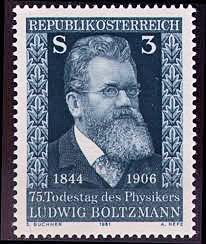3. Freedom alone is
meaningless
Previous - Next - Contents
When I read about Jean-Paul Sartre's
philosophy portrayed in his novel La Nausée (Nausea)
by the character
Antoine Roquentin, I suddenly realised I had
overlooked two aspects in my
earlier model about achieving happiness.
 At a first glance 30 year old Roquentin
appears to be free : he has a private
income, no family, no job, no friends, no ties at all, and
can live where he
pleases.
At a first glance 30 year old Roquentin
appears to be free : he has a private
income, no family, no job, no friends, no ties at all, and
can live where he
pleases.
Sartre however argues that Roquentin is not really
free, but instead
merely non-attached or uncommitted.
He is, Sartre
explains, a mockery of
freedom and is running away from it. Roguentin is decidedly
not
happy.
The first aspect I overlooked (or rather did not
consider) is that
one happiness factor by itself is not enough.
Only the combination
of a number of factors can achieve happiness.
Roquentin has his freedom,
but
he has no friends, no-one he can really talk to, no thoughts
other
than casual ones. This makes his freedom by itself empty and
useless.
The second aspect I missed was also overlooked by
Epicurus himself.
It is an additional and important factor for happiness :
a sense of
purpose.
Epicurus moved with his friends into one house (as a
commune).
They all
quit their jobs to achieve their freedom and sustained
themselves by growing their own food in a large
garden.
But they were not without a purpose. Most of them
were philosophers, some
writing books and all contemplated and discussed subjects
of mutual interest
and
importance.
|
Therefore here is my modified list of factors for achieving
happiness :
1. Health 2.
Freedom
3. Thought
4. Sense of Purpose
5. Friendship
Perhaps it is possible to be relatively happy without a sense
of purpose for a
short period of time, but soon (I believe) one gets tired and
bored with this.
For me personally a sense of purpose (like for Epicurus and
his friends) is
achieved through occupying my mind with appropriate subject
material to
contemplate, analyse and pass on to others.
These can
be ideas I have
about music, bridge, philosophy, or any other area which
catches my interest,
and may be passed on verbally face to face, or through books,
or (like these
days) through my lessons and Blog entries on the Internet.
For others their sense of purpose (after retirement) may be
achieved through
physical activity, such as volunteering for charity or
community projects,
getting involved in gardening, selling produce on a local
market, etc. etc.
 A sense of purpose is particularly important because
it tends to utilise and enhance the
factors of Freedom, Thought and Friendship.
A sense of purpose is particularly important because
it tends to utilise and enhance the
factors of Freedom, Thought and Friendship.
But watch out ! This Sense of Purpose factor is also
rather
fragile and can easily become your "Achilles'
heel".
For if your efforts
are not being appreciated by those you had meant to benefit
from it, then your happiness and sense of fulfillment may
disappear and instead turn into disappointment, frustration,
even
depression.
This happened for example to the renown
physicist Ludwig Boltzmann, who's ground breaking work
on entropy was not recognised and confirmed until
weeks after he had in despair committed suicide in Vienna in
1906.
Next Page -
Top of Page
Copyright © 2010 Michael
Furstner
|

 A sense of purpose is particularly important because
it tends to utilise and enhance the
factors of Freedom, Thought and Friendship.
A sense of purpose is particularly important because
it tends to utilise and enhance the
factors of Freedom, Thought and Friendship.